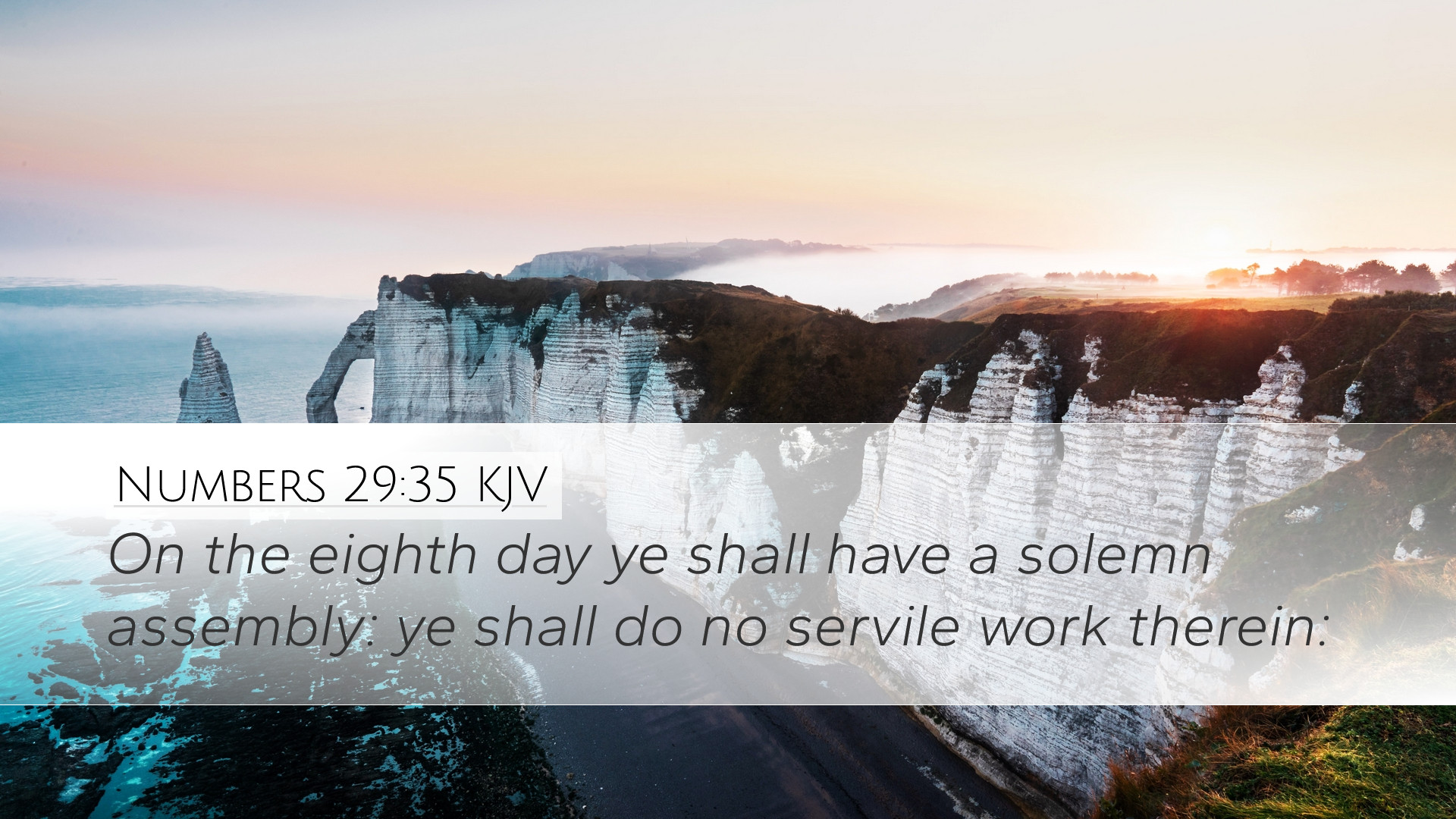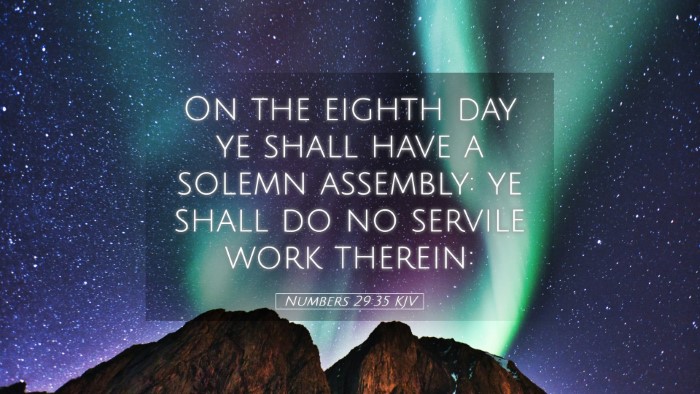Commentary on Numbers 29:35
Verse: "On the eighth day you shall have a solemn assembly: you shall not do any ordinary work." (Numbers 29:35, ESV)
Introduction
Numbers 29:35 presents an essential aspect of the ritual observances of Israel, particularly in the context of the Feast of Tabernacles, which underscores the significance of rest and holy convocation. This verse is pivotal in understanding the broader themes of worship and community in Israelite society.
Contextual Background
The Book of Numbers details the Israelites' journey in the wilderness and includes various laws and regulations given to them. By the time we reach chapter 29, it addresses the offerings and sacrifices related to various feasts, particularly the Feast of Tabernacles. This feast is a time of remembering God's provision and a demonstration of gratitude.
Significance of the Eighth Day
The eighth day holds a unique significance as it symbolizes new beginnings and the fullness of time. In Jewish tradition, the seventh day is the Sabbath of rest, while the eighth may represent a new cycle after the completion of a week of sacred observance.
Commentary Insights
1. Matthew Henry's Perspective
Matthew Henry emphasizes the notion of assembly and communal worship. He notes that the eighth day is a day called for solemn assembly, signifying that believers should gather together to worship God. This assembly represents unity among the people of God and underscores the importance of collective worship and devotion.
2. Albert Barnes' Exegesis
Albert Barnes observes that the command “you shall not do any ordinary work” reflects the principle of Sabbath rest. He notes that this day should be wholly consecrated to God, devoid of common daily activities. This instruction serves to redirect the focus away from mundane life to the sacred, allowing for reflection and genuine worship.
3. Adam Clarke's Analysis
Adam Clarke provides a theological interpretation of this rest as not merely abstention from work but as an invitation to enter into a deeper relationship with God. He points out that the cessation of work allows time for spiritual refreshment and renewal, encouraging the worshippers to reflect on God's past provisions during the Feast and look forward to His continued encouragement.
Theological Implications
The directives given in Numbers 29:35 resonate deeply within the framework of Christian theology. The call to solemn assembly is echoed in the New Testament, where believers are urged to gather and encourage one another, recognizing the significance of communal worship (Hebrews 10:25). Additionally, the concept of rest found in this verse is foundational to understanding Jesus' teaching on Sabbath rest as a means of experiencing the kingdom of God (Matthew 11:28-30).
Practical Applications
- Emphasis on Community: This verse encourages pastors and church leaders to prioritize communal gatherings, reflecting on the importance of shared worship experiences.
- Rest and Renewal: Individuals and communities can take heed of the biblical call for rest, fostering a culture that respects Sabbath observance in various forms, not limited to just a day of the week.
- Spiritual Reflection: Congregations might adopt practices that center on reflective pauses in their weekly routines, allowing time for contemplation on God’s providence.
Conclusion
Numbers 29:35 encapsulates important themes of communal worship and divine rest. By including it in the broader narrative of Israel’s journey, we see the importance of not only recognizing the physical necessity for rest but also seizing the opportunity for spiritual rejuvenation. As we reflect on this verse, may pastors, students, and scholars alike glean insights that foster a deeper understanding of worship and holy assembly in their contexts.


